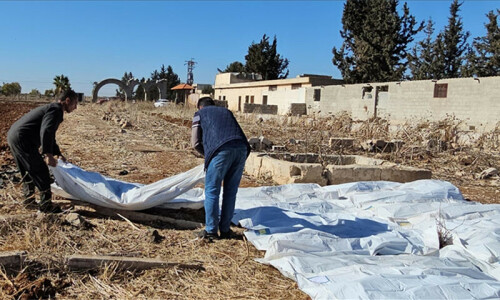
THIS year marks the 118th birth anniversary of Begum Ra’ana Liaquat Ali Khan, who was born on Feb 13, 1905, and died on June 13, 1990, after having lived a life of distinction, dignity and integrity. For the women of Pakistan, she was and will always be a role model of courage and vision.
She was 46 when her husband Liaquat Ali Khan, the country’s first prime minister, was martyred. She had two minor children to take care of all by her own self as her parents and blood relations had cut off all ties once she embraced Islam by choice. She had no property or support for survival in that hour of need. Her husband had not filed any claim against his rural or urban properties that the couple had left behind in the wake of partition.
A visionary without doubt, she was the driving force behind the All-Pakistan Women’s Association (APWA), and had set up projects, like the Pakistan Women’s National Guard and the Pakistan Women’s Naval Reserve. She actively worked for women empowerment in a practical manner.
When she fell on hard times after the death of her illustrious husband, she struggled for a while before joining the foreign service. She first served as Pakistan’s representative to the 7th session of the United Nations General Assembly in 1952 where she was the first Muslim woman delegate.
In 1954, she was appointed Pakistan’s ambassador to the Netherlands, becoming the first woman ambassador of the country. She represented Pakistan in the Netherlands until 1961 and was also the doyen of the Diplomatic Corps there. She subsequently served as Pakistan’s ambassador to Italy and Tunisia.
During her foreign assignments, she successfully promoted cordial bilateral relations. Though her husband had banned Dutch flights from using Pakistan’s airspace as a token of his policy of promoting decolonisation of Indonesia, Begum Ra’ana was able cultivate warm relations with the Netherlands, and the Queen there counted her among personal friends.
After a successful diplomatic career lasting over a dozen years, Begum Ra’ana returned to the country and subsequently became the governor of Sindh in 1973. Again, she was the first Pakistani woman to hold a gubernatorial position in the country. In many diverse ways, she was way ahead of her times.
Mahfoozun Nabi Khan
Karachi
Published in Dawn, February 12th, 2023













































Dear visitor, the comments section is undergoing an overhaul and will return soon.